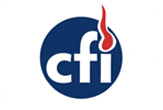'Hoax Busting' Science Center Expands

AMHERST, N.Y. -- Display cases at the Center for Inquiry hold snake oil and other murky cure-alls, fortune-telling tools and a bug-eyed alien in repose. Intriguing mysteries to some, to the center they are something else: byproducts of a public too willing to turn a blind eye to science.
For years the center and its determined hoax-busters have taken on crop circles and ghost sightings -- any and all things paranormal.
But equally important as proving what isn't true, chairman Paul Kurtz says, is proving what is. That's why, as the center undertakes a major four-year expansion, there is a special focus on getting the public to get science.
"The United States is the leading scientific and technological power on the planet, with amazing breakthroughs, yet the general public is basically illiterate about science," said Kurtz, 78, founder of the Committee for the Scientific Investigation of Claims of the Paranormal (CSICOP) and the Council for Secular Humanism, both housed at the Center for Inquiry.
The dangers go beyond a tendency to fall for urban legends and Internet chain letters. More serious, Kurtz believes, is a willingness to embrace unproven alternative medical treatments and to reject advances like embryonic stem cell research, opposed by many on religious grounds.
"We're concerned with cultivating an appreciation for the scientific outlook," said Kurtz, professor emeritus of philosophy at the University at Buffalo. "I think the United States may very well fall behind in this kind of scientific race."
Kurtz, his 60 employees and a who's who of fellows that have included Carl Sagan, Betty Friedan and Andrei Sakharov, follow a motto of applying reason and science to all areas of human life.
Sign up for the Live Science daily newsletter now
Get the world’s most fascinating discoveries delivered straight to your inbox.
Nothing is off limits: The center is about to launch the Journal for the Scientific Examination of Religion. More than a dozen other journals and magazines are already being published, with titles like the Skeptical Inquirer, Free Inquiry and The Scientific Review of Alternative Medicine.
Neil Young, 20, was at the center this week, taking a class on the ethics and politics of punishment, forgiveness and reconciliation.
"There's no aspect of life in which critical thinking is not beneficial," said Young, an intern at the Center for Inquiry's Los Angeles location, one of a dozen far-flung branches that also include New York City and Florida, Germany, Mexico, Nepal and Nigeria.
Does he think the center can succeed with its "Science and the Public" efforts and interpret science for the masses?
"It's a laudable goal," said Young, while acknowledging it may be an uphill battle. "I mean, there are a lot of places where people actually want to teach creationism instead of evolution."
The center hopes to raise $26 million in the next four years to add on to its suburban Buffalo world headquarters.
Kurtz believes CSICOP's work, begun in 1976, has contributed to a real drop in belief in the paranormal.
South of Buffalo, at the spiritualist community Lily Dale, where resident psychics draw thousands of visitors for readings and advice each year, the center's work is taken in stride.
"We always welcome people to question because by questioning we're able to educate," Lily Dale President Sue Glasier said. "We believe in free will so people come with open minds and they come searching."
For Kurtz, what he calls the "planetary community" offers enough excitement -- the exploration of galaxies, medical advances and emerging technologies. No need for science fiction or fantasy here.
"Who needs Harry Potter?" Kurtz laughs. "The world itself is really unbelievably enticing and mysterious and exhilarating when you investigate it."










